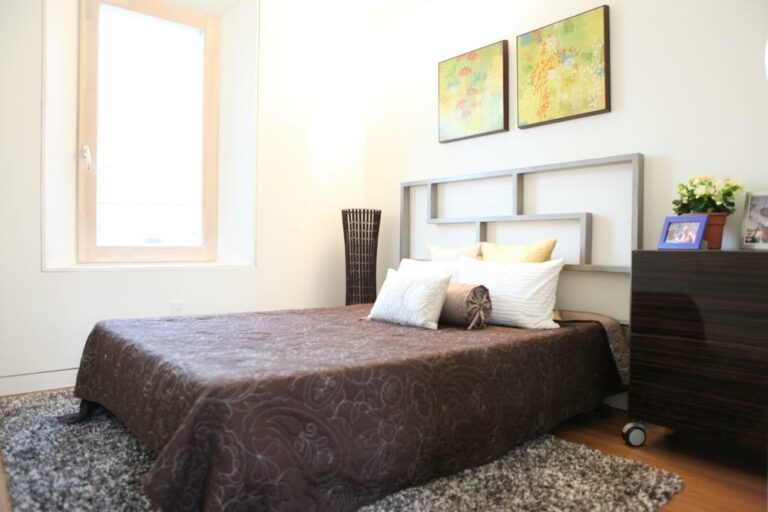If you’re ill with a cold or your allergies are worsening, leaving you with a runny nose, a night of good sleep is usually the best medicine. Unfortunately, when your nose is so stuffed that you can hardly breathe, it’s really difficult to even fall asleep, never mind having a good night’s sleep.
Your first thought when your nose is runny might be to use a decongestant in order to clean up your sinuses. However, this isn’t always the best option since many decongestants contain ingredients that will keep you awake. Not to mention that it isn’t always a mucus buildup that causes nasal congestion but rather the swelling of your nasal passages.
So, before you reach out for your medicine cabinet or visit the drugstore, try some natural tricks to decongest your stuffy nose. In this article we’ll tell you about the causes of a runny nose, then we’ll give you some tips on how to decongest your runny nose, and in the end, we’ll suggest when to visit your doctor.
Stuffy Nose Causes
Generally speaking, nasal congestion in most cases is caused by rhinitis or inflammation of the mucus membranes, which cover the inside of the human nose. Non-allergic or allergic triggers can cause rhinitis. Here are a few of the most common causes of rhinitis and nasal congestion:
- Allergies. Environmental triggers, such as perfume, dust mites, smoke, or seasonal allergies, can result in an allergic response. For instance, if you’re allergic to dust mites, close contact with your pillow while you’re asleep can cause a runny nose.
- Infections of the upper respiratory system. These respiratory infections, such as a common cold or flu, can result in nasal congestion. This situation worsens at night because your nasal passages don’t drain as efficiently while you’re lying down.
- Gastroesophageal reflux disease (GERD). If a person suffers from acid reflux, lying down can allow more acid from the stomach to reach the nasal passages and irritate them, causing a runny nose.
Tips for Sleeping With Stuffy Nose
Although having nasal congestion throughout the night is quite common, there are some simple tips to alleviate your runny nose and have a good night’s sleep.
Elevate Your Head
Nasal congestion tends to get worse during the night since it’s difficult for your sinuses and nose to drain. Mucus pools in your head, causing you trouble breathing and potentially resulting in a sinus headache when you wake up.
Try changing your sleep position. Instead of sleeping on a thinner pillow, elevate your head on a couple of pillows. This way, your sinuses will drain more easily. Some people find relief when they sleep on a couch or recliner.
Use a Humidifier
A humidifier or a vaporizer is a device that adds moisture to dry air. Due to the fact that the cold, dry air might make you feel more congested and intrude with your sinuses draining as they should, a vaporizer or humidifier might be helpful because they pump moisture into the dry air that you inhale. This, in turn, might raise the humidity in your nostrils and make you breathe easier.
Running the humidifier during the night while you’re asleep can help open up your airways, resulting in more comfortable sleep.
However, the use of a humidifier brings certain risks. For many people, a humidifier might worsen their cold symptoms.
Eat Honey
If you already have a cough or sore throat, you might have trouble sleeping. When you have a runny nose while you’re asleep, it can make you breathe through your mouth instead of your nose, so your throat might end up sore and dry. Eat a tablespoon of honey, and the discomfort in your throat will be gone. However, be careful because honey is an allergen, so if you’re allergic to it, you’ll end up worsening the situation.
Take a Hot Shower Before Bed
A steamy shower might help with opening your sinuses. Showering with hot water dissolves dried mucus, and your nasal passages will be drained before you go to bed, relieving pain and decreasing nasal stuffiness.
Utilize a Saline Spray
A saline rinse or spray, which contains a small amount of salt combined with sterile water, also known as saltwater, might be helpful for decongesting the sinuses. A saline spray helps to relieve swelling and irritation, and it can help you feel less stuffed during the night. Saline sprays that don’t contain drugs are safe for usage a few times a night, so you can keep saline rinses right beside your bed and use them whenever you need to.
Wear a Nasal Strip
Most people use these nasal strips to prevent snoring, but they can ease the breathing process for people with runny noses. Sleep with the nasal strip until the stuffiness eases.
Essential Oils
Nasal sprays that contain essential oils, such as eucalyptus, peppermint (menthol), rosemary, and oregano, effectively improve the symptoms of the upper respiratory system almost immediately after application.
Drink Herbal Teas
Calming herbal teas are one of the many hot drinks that can improve your sleep quality as well as help with a stuffy nose. Because of their sleep-inducing and anxiety-reducing antioxidants, varieties such as camomile and passionflower tea are particularly helpful for relieving late-night stress and preparing the body for a good night’s sleep. Just make sure to avoid anything with caffeine.
When Is It Time for a Doctor?
A passing runny nose isn’t a reason for you to be concerned, particularly if you can associate it with a cause such as allergies or a simple cold. However, there are special conditions that require medical help. So, if you notice that your runny nose lasts longer than a couple of weeks, it may be time to visit your doctor.
In case you experience any of the following situations, you need to seek medical advice:
- Fever. Nasal congestion along with fever can point to a sinus infection or other underlying medical conditions, such as flu, so you better visit your doctor.
- Nose bleeding. This can be a symptom of nasal polyps or another structural issue that a healthcare professional might want to take a look at.
- Facial pain or foul-smelling infections, green discharge. This can be an indicator of a sinus infection. It can happen when allergies or colds cause liquid build-up, resulting in infection. These might need to be treated with medications, such as antibiotics.
Additionally, if your runny nose is really disrupting your sleep, you better visit your doctor because nasal congestion can cause medical conditions, such as obstructive sleep apnea, to worsen, so it’s really important to get medical treatment asap.
Your medical professional can prescribe you antihistamines for your allergies in the form of oral medications or nasal sprays. In more severe cases, your doctor might prescribe steroids to decrease the nasal passages inflammation or decongestant, such as pseudoephedrine, to help cope with the symptoms.
Concluding Thought
A stuffy nose is usually the result of a cold, sinus infections, allergies, or flu symptoms, which result in mucus-filled airways and inflamed nasal passages. Although over-the-counter medications can be helpful to temporarily help with your runny nose, some natural remedies can provide relief as well. But be careful, as not every natural nasal decongestant is safe for everyone. Some of them come with risks for both children and adults. So, if the natural home remedies we mentioned here aren’t quite helpful, get an appointment with your doctor right away.






